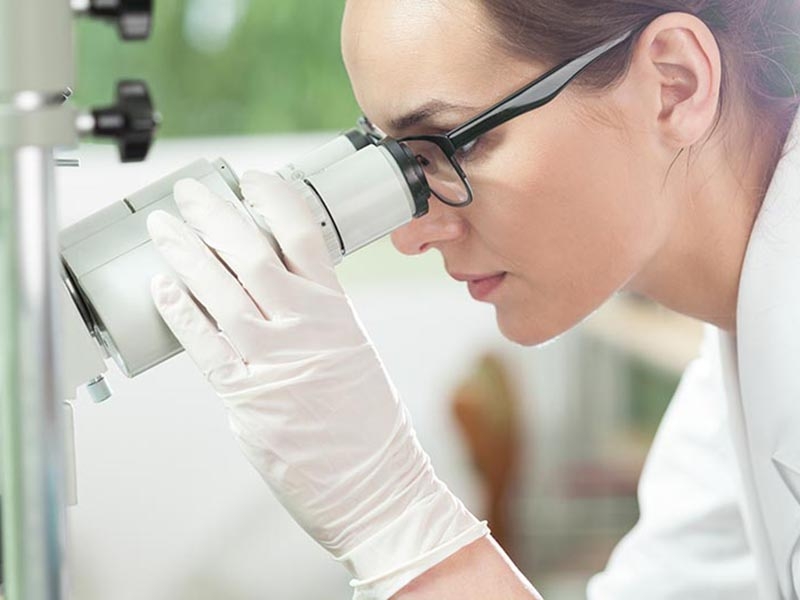
Colposcopy
Watch our video about Colposcopy
What is Colposcopy?
Colposcopy is a specialised medical examination used to closely inspect the cervix, vagina, and vulva for signs of abnormalities or diseases. The procedure is performed using a colposcope, a device equipped with a magnifying lens and a light source to provide a clear and detailed view of the tissues.
At Clinic Consultation, our experienced specialists use advanced colposcopy equipment to ensure accurate and reliable results. The procedure is minimally invasive, safe, and an essential tool for identifying potential cervical and vaginal health concerns.
What is Colposcopy Used For?
Colposcopy is primarily used to diagnose and evaluate abnormal cervical screening results, such as irregular Pap smear findings. It helps detect precancerous changes, infections, and other conditions affecting the cervical or vaginal tissue.
In addition to diagnosis, colposcopy is vital for monitoring patients with a history of cervical abnormalities or those undergoing treatment. By identifying issues early, it allows for prompt intervention, improving long-term outcomes.
How Does Colposcopy Work?
During a colposcopy, the patient lies on an examination table, similar to a Pap smear procedure. The healthcare provider uses a speculum to open the vagina and then positions the colposcope outside the body to magnify the cervical area. A solution, such as acetic acid or iodine, may be applied to highlight abnormal cells.
The procedure is typically completed within 10-20 minutes and causes minimal discomfort. If suspicious areas are detected, a small biopsy may be taken for further analysis. At Clinic Consultation, we ensure patient comfort and provide clear explanations throughout the procedure.
What Are the Types of Colposcopy?
Colposcopy can be tailored to meet specific diagnostic needs:
Standard Colposcopy
This type involves a thorough visual inspection of the cervix, vagina, and vulva using a colposcope. It is commonly used for general screening and evaluation of abnormal cervical smear results.Colposcopy with Biopsy
If abnormal areas are identified, a small tissue sample is taken for laboratory analysis. This procedure allows for a more detailed evaluation of the cells and tissues.High-Resolution Colposcopy
Utilises advanced imaging technology to provide enhanced magnification and detailed views of the cervical tissue. This type is especially useful for detecting subtle abnormalities.
At Clinic Consultation, each type of colposcopy is performed by skilled specialists to ensure accurate diagnosis and comprehensive care.
What Conditions Can Be Detected Through Colposcopy?
Colposcopy is effective in diagnosing a variety of conditions, including:
Cervical Dysplasia
Identifies abnormal, precancerous cells on the cervix.Cervical Cancer
Detects early-stage or advanced cervical cancer.Human Papillomavirus (HPV) Infection
Evaluates tissue changes caused by HPV.Genital Warts
Diagnoses warts caused by HPV on the cervix or vulva.Vaginal Infections
Identifies infections causing inflammation or abnormal discharge.Polyps or Cysts
Detects benign growths on the cervix or vaginal walls.Atrophic Changes
Assesses thinning of the vaginal lining, often related to menopause.
When is Colposcopy Indicated?
Colposcopy is recommended in the following scenarios:
Abnormal Pap Smear Results
To investigate irregular cervical screening findings.Positive HPV Test
To evaluate potential tissue changes caused by high-risk HPV strains.Unexplained Bleeding
To identify the cause of bleeding after intercourse or between periods.Chronic Pelvic Pain
To examine for underlying cervical or vaginal conditions.Visible Lesions or Growths
To assess abnormalities noticed during a routine pelvic exam.Monitoring Previous Treatments
To ensure successful recovery from procedures like cryotherapy or LEEP.High-Risk Patients
For individuals with a family history of cervical cancer or persistent HPV infections.
Pre- and Post-Colposcopy Care
Before the Procedure:
- Avoid vaginal douching, tampons, or intercourse for 24-48 hours before the exam.
- Inform your doctor if you are pregnant or have any medical conditions.
- Schedule the procedure when you are not menstruating to ensure optimal visibility.
After the Procedure:
- Light spotting or discharge is normal if a biopsy was taken.
- Avoid heavy lifting, tampons, and sexual activity for 48 hours post-biopsy.
- Follow your doctor’s instructions for any prescribed treatments or follow-ups.
What Are the Contraindications for Colposcopy?
While colposcopy is generally safe, it may not be suitable in some situations:
- Active vaginal or cervical infections, which should be treated prior to the procedure.
- Severe cervical stenosis, making it difficult to visualise the area.
- Pregnancy, especially in cases where a biopsy is not advisable.
At Clinic Consultation, our specialists carefully evaluate each patient’s circumstances to determine the most appropriate approach.
What Are the Alternatives to Colposcopy?
For patients unable to undergo colposcopy, alternative methods include:
- Pap Smear: A basic screening test for cervical abnormalities.
- HPV Testing: Detects the presence of high-risk HPV strains.
- Ultrasound: Used to assess pelvic structures in cases of bleeding or pain.
- Biopsy Without Colposcopy: Direct tissue sampling for analysis.
Our team at Clinic Consultation ensures that every patient receives a tailored diagnostic plan based on their unique needs.
Book Your Colposcopy at Clinic Consultation
Colposcopy is a vital tool for maintaining cervical and vaginal health. At Clinic Consultation, we combine advanced technology with compassionate care to provide accurate and thorough evaluations. Schedule your colposcopy online today and take a proactive step towards your well-being.
Click here to schedule an appointment online